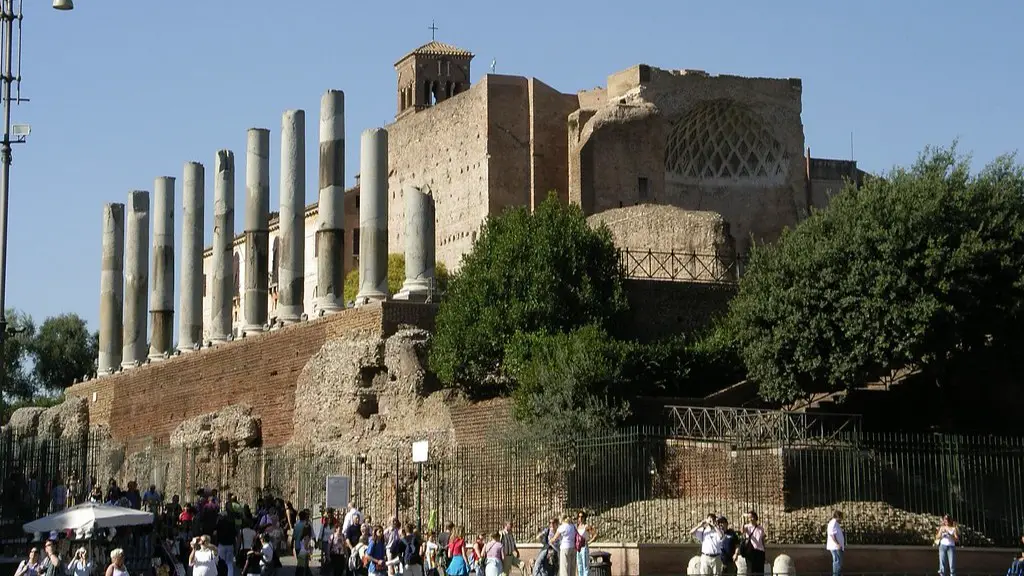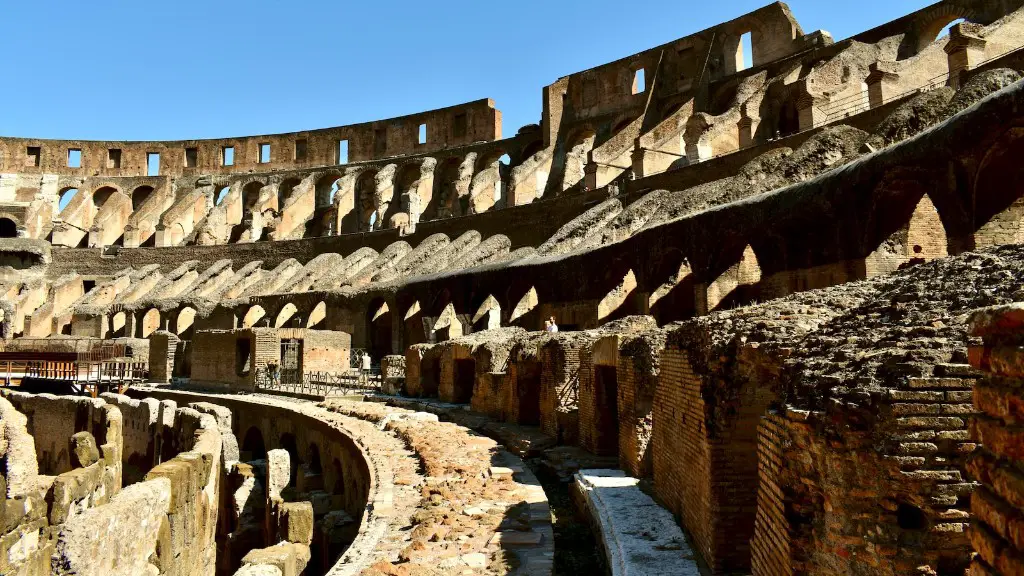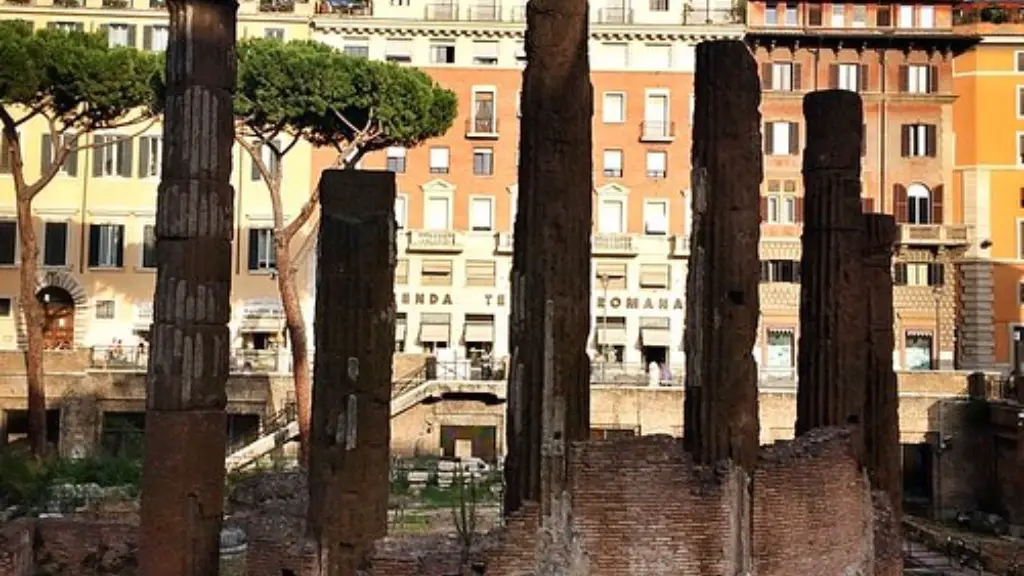Political Decentralization
Ancient Rome began as a monarchy, with the power held by an individual ruler and maintaining a strong central government. However, as social and economic forces grew, the monarchy gradually transitioned towards a republic, with elected officials representing their citizens in the Senate. This split of central and local power reduced Rome’s stability, creating political disputes and divisions that eventually devolved into civil war.
At first, the Republic elected two leaders (consuls) to serve one-year terms and make the majority of governmental decisions. As the years went by, though, Rome expanded, both territorially and financially, and the Senate soon realized it could not easily keep track of the laws and people in its growing regions. This caused them to decentralize power and give some legal standing to the areas, which in turn created an environment for political instability.
This decentralization led to a power struggle between the Senate and local elected representatives like consuls. Disputes concerning taxes, laws, and other issues now needed to be solved without a unified approach. The Senate, which was the larger and more influential of the two groups, gradually withdrew their support for the provinces, leading to tension and resentment amongst the local populace.
The Roman citizens were also affected by the decentralization. Local debates were now far more common, and citizens were often split along ideological lines. This tension became pronounced as the Republic shuffled assets between provinces and citizens. Citizen unrest was exacerbated by the rise of military generals with their own independent armies, and civil war was soon a real possibility.
Social Disparities
Another important factor leading to civil war in ancient Rome was the wide socioeconomic gap between the ruling Senate and the local citizens. The Roman elite held almost all economic and political power, while the citizens struggled to make ends meet. Bitter resentment grew among the ordinary Romans, which helped to fuel the political divisions of the time. This economic inequality was particularly pronounced in the Roman provinces, where the political power was effectively concentrated in the Senate.
This social disparity contributed to the eventual Civil Wars by creating resentment among both the Roman citizens and the senators. While the Senate insisted on their superior authority, the citizens fought to maintain their autonomy and independence. This tension was only exacerbated by the decentralization of Roman power, creating an environment ripe for civil war. Citizens wanted more power and the senators wanted to maintain their control. This struggle eventually led to conflict and violence.
There was also an ethnic component to this civil unrest. Roman citizens held a strong sense of identity, and this sense of identity was strongly entwined with the idea of Roman superiority. This led to a situation where citizens were divided along ethnic lines, with the Senate and its citizens often in conflict. The Senate’s increasing disregard for its provinces and its promotion of a Roman-centric world view only increased these tensions, leading to further civil unrest.
Impact of Civil Wars
The civil wars had a devastating impact on Rome and its citizens. Many areas were sacked, and much land and property was destroyed. Furthermore, the lack of a unified government had a destabilizing effect, as there was no one to maintain law and order in the face of civil unrest. This civil disorder caused much of the population to flee to the safety of other Roman cities, which further damaged the local economy and infrastructure.
The Roman Senate was also greatly weakened by the civil wars, as they saw their political and economic power constrained. Rome was now divided into smaller states, each with their own government and authority. The Senate had become a largely powerless force, much like the Roman citizens they sought to govern.
Furthermore, the civil wars also led to an increase in slave labor. This was due in part to the Roman Senate’s unwillingness to pay wages to their citizens as they felt it would weaken their own power. This led to a large influx of slaves into Roman territories, further degrading the Roman people’s sense of identity and autonomy.
Causes of Civil Wars Concluded
In summary, civil wars in ancient Rome were mainly caused by the decentralization of power and the increasing socioeconomic divide between the Senate and the citizens. Decentralization created an environment of political instability, and the economic disparity further increased tension and animosity between the two groups. The Senate’s attempts to maintain power, combined with a sense of Roman superiority and the influx of slave labor, eventually led to civil war.
Aftermath of Civil Wars
The aftermath of the civil wars had a long-lasting and profound impact on Rome. The Roman Senate was weakened and its citizens were further oppressed by slave labor. The Roman economy was weakened and the infrastructure was in disarray. Furthermore, the civil wars left deep scars in the Roman psyche, shifting their sense of identity and setting them on a path of decline.
The civil wars also left Rome politically divided and vulnerable. There was no unified government to protect the citizens and their interests. This left the citizens in a precarious situation, as any small dispute now had the potential to escalate into a civil war.
In the wake of the civil wars, Rome was strongly divided and weakened. The Roman citizens were now more subject to their rulers than ever before, and were in a very precarious position with regards to their political, economic, and social power.
Reforms Following the Civil Wars
The civil wars forced the Senate to enact several reforms that helped to secure the stability of the Roman Republic. To begin with, the Senate worked to centralize the government, giving it control over the provinces, laws, and people. This restored some level of order and allowed for a unified approach to ruling the Roman citizens.
The Senate also enacted several reforms to improve the economic and social standing of the Roman citizens. This included reducing taxation, providing financial aid for the poorer classes, and introducing new protections for citizens against arbitrary arrest and execution. These reforms helped to reduce the social tensions that had contributed to the civil wars and restored some semblance of law and order in Rome.
Rome also began a process of cultural and religious reforms that helped unify the people and bring them closer together. This included introducing public festivals, reformions ideas, and allowing citizens to practice their own religions rather than just the official Roman faith. These reforms helped to bridge the gap between citizens and senators, and paved the way for a more peaceful and prosperous Roman Republic.
Future of the Roman Republic
The civil wars in Rome contributed heavily to its eventual decline, but they also played a critical role in the emergence of the Roman Republic and the eventual peaceful co-existence of Rome’s citizens and senators. The reforms enacted in the wake of the civil wars have endured over time and have created a more equitable and stable society for the Roman people.
Although Rome has seen many difficulties in the past and may still face difficult times in the future, it is safe to say that the civil wars of ancient Rome had a lasting and beneficial effect on the Roman Republic and its people. The Senate’s reforms, combined with the strengthening of the Roman identity and culture, have allowed the citizens of Rome to continue living in peace and prosperity, even in the face of adversity.




